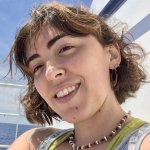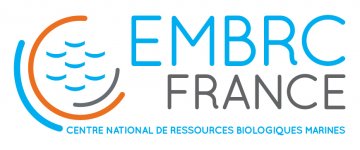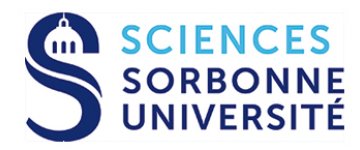Iris Rizos
PhD

PhD Project: Life cycle of photosymbiotic Radiolaria
I am interested in understanding the life cycle of a group of marine protists (Radiolaria) that live in symbiosis with photosynthetic microalgae (photosymbionts). Radiolaria are planktonic amoeboid protists bearing a mineral shell and inhabiting all oceans of the planet from tropics to poles. Nevertheless, these ubiquitous actors of the marine microbiome cannot be cultivated and, thus, little is known about their life. Different radiolarian life cycle stages with varying morphologies have been observed on the field, but we still lack the knowledge of how they are connected together from one generation to another. Also, for a new generation to arise, juvenile radiolaria have to acquire de novo photosymbionts in the environment ; a process whose regulation remains obscure. By focusing on the molecular actors controlling life cycle transitions I want to link together the known life-stages of Radiolaria and gain insight into the establishment of the symbiosis.
Professional experience:
- 2021-2024, PhD project: Life cycle of photosymbiotic Radiolaria
Supervisor: Fabrice Not, ECOMAP team, Roscoff Marine station
Co-supervisor: Lucie Bittner, Bioinformatics team (ABI), Institute of Systematics, Evolution and Biodiversity, National Museum of Natural History
- 2021, Master 2 thesis (6 months): Diversity and biogeography of unknown genomic sequences in planktonic samples,
Supervisor: Lucie Bittner, ABI - ISYEB - National Museum of Natural History
Co-supervisors: Fabrice Not (ECOMAP team, Roscoff Marine station) and Sakina-Dorothée Ayata (Laboratoire d’Océanographie de Villefranche-sur-mer)
Education:
2019-2021: Master’s degree in Environmental Genomics - University Paris-Saclay
2016-2019: Bachelor’s degree in Biology of Populations and Organisms - University of Lille
Field trips:
MOOSE campaign (2021, NW Mediterranean Sea): sample collection for metabarcoding and microscopy https://www.moose-network.fr
Collaborations:
PhD co-supervision: Bioinformatics team (ABI) ~ Institute of Systematics, Evolution and Biodiversity ~ National Museum of Natural History



